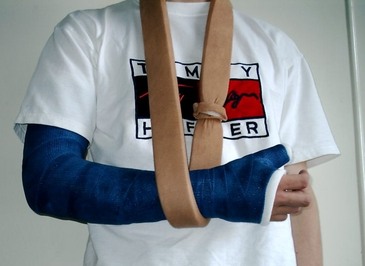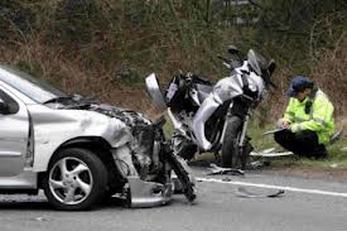No Win, No Fee
This is the eighth Legal Eagle article by our guest writer Tony Carter. Tony is well known on the British Motorcycling scene, being a favourite speaker on the club and forum circuit.
A former police rider, RoSPA examiner and a trained accident investigator, he now works for the well-known legal firm of McMillan Williams, whose highly qualified team specialises in motorcycling and the law, from insurance claims to motoring offences. He offered to write these articles in exchange for a plug for his new firm, and we readily agreed. Subliminal advertising aside, there’s a lot of interesting stuff and plain good sense in what he says, and that’ll cost you nowt.

‘Ambulance Chasers’ is the rather ghoulish nickname applied to some of the new breed of ‘No-Win-No-Fee’ solicitors you will have heard about. In recent years, the press has been awash with tales of their methods and some of the payouts that have, or have not, been received.
Just another aspect of the Blame Culture we are now living in you might think. But what if you are involved in an accident? Suddenly something you heard in passing on the radio takes on a personal meaning. Should you use such a service? How does it work and how come there are now so many firms offering this? Is there a catch? Tony debunks some of the myths, cuts through the double talk and tells us how it really is.
While No-Win-No-Fee solicitors have attracted some negative press, not least for the way a few firms have pursued potential clients, in fact the whole thing was started by the Government to help everyone get affordable justice. Fact is, until 2001, many personal injury cases were either funded by the rigorously means-tested Legal Aid scheme, or by the client. This resulted in a system where many people could not get the compensation they needed because they could not afford the fees nor wade through the red tape necessary to bring a claim. Particularly affected were those with life changing injuries; cash might not get you out of a wheel chair but it can help re-build your life to enable you to live with one. It can also help your partner and children if you’re not able to work anymore. For serious cases the consequences of unequal access to legal help could be dire indeed. Few Governments would have been prepared to put up the Legal Aid bill, and so funding was provided by another means…. No-Win-No-Fee was born.
What’s it all about?
A No-Win-No-Fee case is where you enter into what’s known as a ‘conditional fee arrangement’ or CFA. This is a legally binding agreement between you and a solicitor, where the solicitor takes on most of the risk involved in pursuing a claim.
Of course there has to be something in it for the solicitor, and they do indeed take a cut if they win – this takes the form of their fees plus a bonus (called a Success Fee) which is set to reflect the degree of risk involved to them (is it a sure thing or a long shot?).
It used to be the case that these fees came automatically from the costs awarded against the other side, but now it is paid by the client (that’s you) and it comes from the total damages you are awarded. The Success Fee cannot exceed 100% of a solicitor’s costs and in total they cannot take more than 25% of your win. In practice the take is usually nearer to a more reasonable 10% from what you are awarded.

What if you lose?
If your claim fails, then generally you will not have to pay your solicitor anything at all (unless you have agreed to pay court costs, expert fees and/or similar expenses that the solicitor advanced for you) or if the case turns out to be fraudulent.
Until the rule changes last year, if your claim failed in court, you would almost certainly be liable to pay the other party’s costs. But now, even if you lose the case, you will not have to pay the other side’s costs, except in rare circumstances. Even then , you can take out what is called After the Event (ATE) insurance against this risk.

And if you win?
If you win your case, you will have to pay from your compensation your solicitor’s fees plus their Success Fee as well as disbursements like court fees and experts’ fees. However, you may get these back in the form of a claim for them to be included in your total compensation. But this does not happen in every case and you will probably lose a bit of your compensation to this cost. Nowadays it won’t be a huge chunk though.

Remember too that ‘winning’ a case is not always straightforward. Sometimes, it’s possible to win a case overall, but to lose interim parts. In these circumstances, you may be liable to pay some of the costs your opponent has incurred in connection with those interim matters. This will generally be covered by your ATE insurance though.
Another way that you may still be affected, even after ‘winning’ the case is if your opponent made an offer to settle your case, known as a ‘Part 36 Offer’. If you reject a Part 36 Offer and then later settle the claim or receive judgment for an amount less than that offered, you may be liable for some or all of the costs incurred by your opponent after the offer was made; the principle being that the offer was reasonable and so should have been accepted and by not doing so you are responsible for forcing further litigation.
If you reject a Part 36 Offer against your solicitor’s advice and receive judgment for an amount less than that offered, it is probable that you will also have to pay all of your own solicitors’ fees, including the success fee, as well as those of the defendant, but this is extremely unlikely to happen.
Out of Court Settlement
The vast majority of personal injury claims that are successful are settled before trial, but a settlement will not relieve you of your obligation to pay your solicitors their costs. Generally, costs are discussed during negotiations leading up to the settlement. So, typically, the settlement will require your opponent to pay some or all of your costs.
Other Stuff
Even if you are pursuing your claim under a ‘No-win-No-Fee’ arrangement with your solicitor, there are some circumstances in which you may nevertheless be exposed to the risk that if you lose you will be liable to pay your opponent’s costs. Ordinarily, your solicitor can arrange for what is known as ‘after the event’ or ‘ATE’ insurance to cover this risk. The ATE insurer is almost invariably prepared to defer payment of the premium until the end of the case.
Conclusion
So, No-Win-No-Fee turns out to be nothing more or less than a tool, one that with luck you may never need to use. But if you do, the modern process is pretty streamlined and straightforward and impartial guidance is available from the Law Society.
What No-Win-No-Fee does is to take much of the risk and hassle out of the process for most people. It enables them to get redress in circumstances in which they might not otherwise be able to. Solicitors earn their fees and a useful bonus, but the amounts are now capped by law.
Any good solicitor will take you through the costs in a detailed way before you begin and insurance is available to cover many risks. In most cases it’s a cost effective and equitable way for most people to access justice, to which they might otherwise be denied.
Tony Carter is employed by MW Solicitors and Bigbikemad.com accepts no liability for accuracy, error or omissions in this article.
